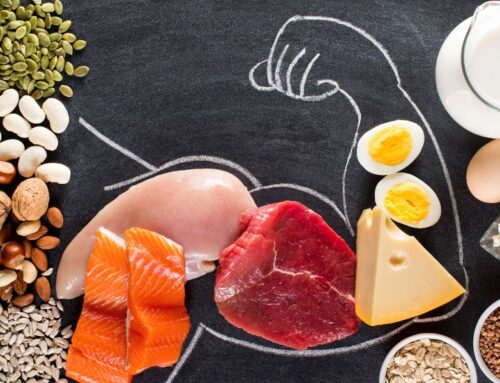June 27, 2025
Part 1: Insulin – The Master Regulator Of Fat Storage
Why Insulin Plays a Central Role In Fat Storage
When it comes to weight gain and fat storage, insulin is the hormone that calls the shots.
It doesn’t get the same attention as calories or carbs, but it should. Because when insulin is elevated, your body isn’t burning fat. It’s storing it.
How Insulin Works In The Body
Insulin is released by your pancreas in response to food, especially carbohydrates, but also protein to some extent. Its primary job is to move glucose out of the bloodstream and into your cells to be used for energy or stored. That sounds helpful — and it is — until insulin becomes chronically elevated. When that happens, your body gets stuck in storage mode.
High Insulin Prevents Fat Burning
Think of insulin as a gatekeeper. When insulin is high, your fat cells stay locked up. When insulin drops, those gates open, and your body can finally begin using stored fat for fuel.
What Causes High Insulin Levels?
Many things can raise insulin, but the most common culprits are carbohydrates (especially sugar, flour, and processed foods), frequent snacking, liquid calories like sodas and juices, and chronic overeating. Stress also plays a role here — elevated cortisol can raise insulin, and poor sleep only makes it worse.
Why Clean Eating Alone Doesn’t Guarantee Fat Loss
This is why eating “clean” but snacking all day can still stall weight loss. If insulin never comes down, your body never gets access to fat stores. No amount of calorie cutting can override that.
The Benefits Of Letting Insulin Fall
When insulin is allowed to fall for several hours at a time — either by spacing out meals or practicing structured eating windows — your body begins to shift gears. Fat becomes available for energy. Inflammation begins to cool. Energy stabilizes. Hunger and cravings settle.
How To Lower Insulin Naturally
Lowering insulin isn’t about deprivation. It’s about restoring rhythm and access to stored energy. This is where fat loss begins — not by slashing calories or eating six times a day, but by creating space for insulin to normalize and your metabolism to function the way it’s designed to.
Optional Supplements For Insulin Support
If you’re already working on spacing your meals, increasing protein, and avoiding sugar, there are a few optional supports that may help the process along. Supplements like berberine have been shown to improve insulin sensitivity and activate AMPK, a key energy-regulating enzyme. Ceylon cinnamon may help reduce post-meal glucose in some individuals, and magnesium (glycinate or citrate) supports insulin signaling and glucose disposal.
These are not essential, but if you’ve already covered your nutritional basics and feel stuck, they might offer a helpful nudge. Always discuss new supplements with your provider, especially if you’re on medications.
Practical Tips To Support Insulin Balance
To support insulin balance today, start here:
- Structure your day around two or three main meals, spaced at least four to five hours apart.
- Prioritize protein and non-starchy vegetables at every meal.
- Avoid grazing, even on healthy snacks — your body needs insulin to fall.
- Eliminate sugary beverages and avoid liquid calories whenever possible.
- Stop eating at least two to three hours before bed to allow insulin to drop overnight.
You don’t need to be perfect. Just consistent enough for your body to begin shifting out of storage mode and into fat-burning mode — the way it was designed to function all along.
Coming Up Next: Part 2 – Insulin Resistance: The Hidden Epidemic Sabotaging Health & Weight Loss
We’ll talk about how insulin resistance develops, how it fuels inflammation, fatigue, and hunger, and what you can do to begin reversing it naturally and sustainably.






